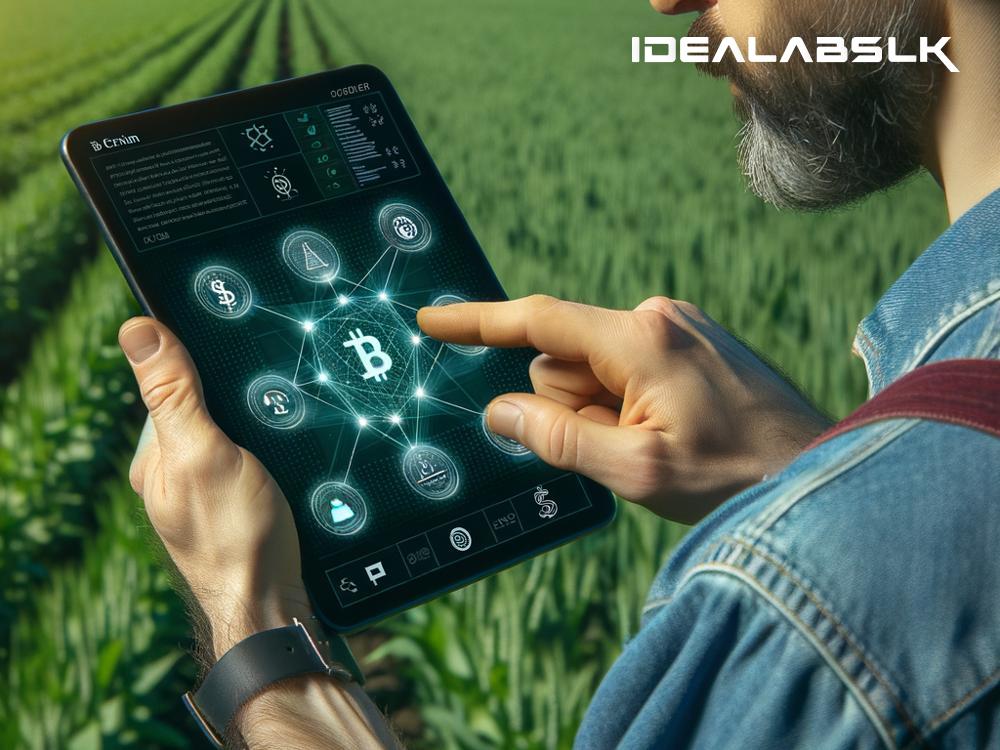Exploring How Blockchain Sparks Fair Wages in the Food Industry
In recent years, blockchain technology has been a hot topic, often linked to cryptocurrencies like Bitcoin. However, the potential of blockchain extends far beyond digital currency, particularly in promoting fair wages within the food industry. But what exactly is blockchain, and how can it help ensure that individuals who grow, pick, and process our food are paid fairly? Let's dive in.
Understanding Blockchain in Simple Terms
Imagine a digital ledger that's not controlled by any single individual or company but is rather spread out across multiple computers. Each entry into this ledger is like a block, and once it’s added, it can't be changed or removed — hence, the term "blockchain." This system is incredibly transparent and secure because any attempt to alter information would require changing the data on every computer in the chain, which is practically impossible.
The Issue of Fair Wages in the Food Industry
The food industry is a global giant, but there's a huge problem lying at its core: the unfair wages of workers. From the farmers to the individuals handling the produce, there are countless stories of unjust pay for the laborious work done. Often, the journey from farm to table involves multiple middlemen, and with each step, there's a dip in the share that goes back to the original producers. This longstanding issue cries out for a solution, and that’s where blockchain technology enters the scene.
Blockchain: The Hero of Fair Pay
How exactly can blockchain technology champion the cause of fair wages in the food industry? Here are a few ways:
1. Transparency: Blockchain creates a transparent record of the entire journey of food from its origin to your plate. This means that every transaction, be it the sale of crops or the wages paid to workers at any stage, can be precisely tracked. Such transparency makes it easy to identify where unfair pay practices are occurring.
2. Eliminating Middlemen: Thanks to its decentralization, blockchain can connect producers directly with retailers or consumers, eradicating unnecessary intermediaries. This not only ensures that farmers and workers receive a larger share of the profit but also reduces the cost for the end consumers.
3. Empowering Consumers: With all information openly available, consumers can make informed decisions about their purchases. They can choose to support brands and products that pay fair wages to their workers, thereby fostering an environment where fair labor practices are rewarded.
4. Smart Contracts: These are self-executing contracts with the agreement directly written into code. In the food industry context, smart contracts can automatically ensure payment distribution based on pre-agreed terms. If a retailer sells a farmer's produce, the payment (minus agreed-upon expenses) can be instantly transferred to the farmer's account without any delay or deduction.
5. Proving Authenticity: For many artisanal and local producers, proving the authenticity and quality of their products is essential. Blockchain can securely store certificates and awards, ensuring producers receive fair compensation for their premium products.
Real-world Implementations
Several projects have begun to utilize blockchain for the betterment of the food industry. For instance, Fairfood International launched a project using blockchain to trace the production of coconuts in Indonesia, ensuring fair pay for local farmers. Similarly, companies like IBM are partnering with food giants to use blockchain for enhancing traceability and fairness in the supply chain.
The Road Ahead
While blockchain technology holds the potential to revolutionize the food industry by ensuring fair wages and transparent practices, it's not without its challenges. The technology requires widespread adoption, and users need a basic level of digital proficiency to engage with it. There's also the task of establishing global standards for such practices. However, the journey towards a fairer food industry, powered by blockchain technology, is already in motion.
Concluding Thoughts
Blockchain is no longer a buzzword reserved for the tech community or cryptocurrency enthusiasts. Its implications for the food industry, especially in promoting fair wages, are profound and far-reaching. By fostering transparency, eradicating unnecessary intermediaries, and empowering consumers, blockchain stands as a beacon of hope for millions of workers within the food industry. As this technology continues to evolve and gain acceptance, we edge closer to a world where every individual along the food supply chain receives their fair share. The revolution is here, and it tastes incredibly fair.

